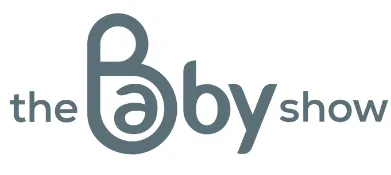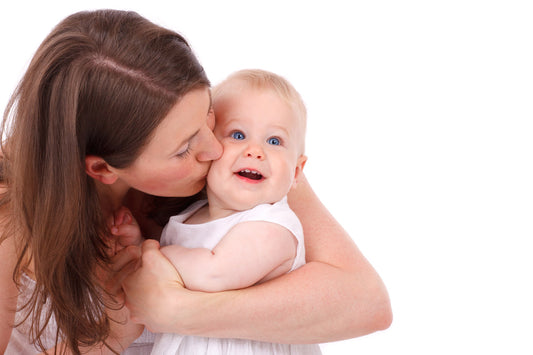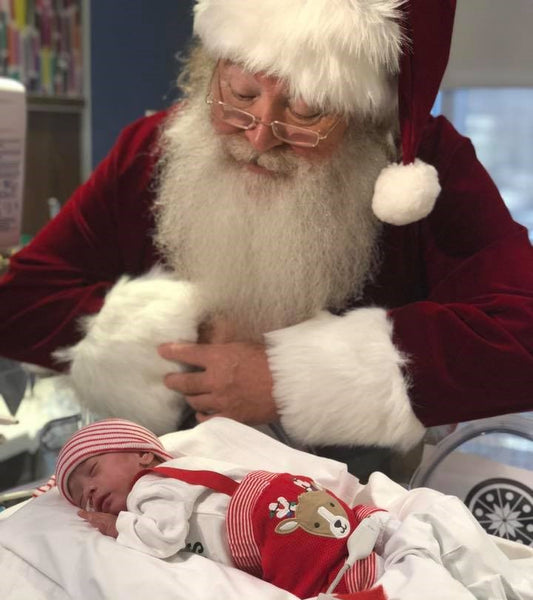Becoming a parent brings a lot of joy. Few things are as magical as watching your baby sleep, grow, and smile. But, it also comes with a lot of questions and insecurities, especially in the strange time we find ourselves in at the moment. There are so many things to learn when you first become a parent - and babies’ hygiene is one of them!
In the third trimester of pregnancy, mothers give antibodies to their babies through the placenta. After birth, antibodies are transferred from mother to child through breast milk. This helps establish a newborn’s immune system. However, the immune system of a newborn is not as strong as it becomes later in life, and parents and experts have disagreed on how to protect and develop this immune system.
Some think that babies need to be in contact with germs to become resistant to their effects and develop their immune system. Some other people, however, think that children need a more sanitised environment to stay healthy. It can all be very confusing!
What do we need to know about babies’ hygiene?
In the past couple of years, we have all become more alert about bacteria and viruses because of the coronavirus pandemic. As soon as it became clear how the infection spreads, experts all over the world began to advise and remind people on what to do to maintain proper hygiene in the home and protect themselves and their loved ones.
According to doctors working in the field of infectious diseases, this virus affects children differently than it does adults. According to findings that we have so far, kids can be the carriers of the virus, and in some cases develop very mild cold-like symptoms, and babies appear to have a natural immunity to the virus. Still, this has got more parents thinking about whether they are teaching kids about hygiene adequately and how they should be protecting their little ones.
The hygiene tips for babies that we are going to mention in this article are general recommendations for everyday life with a baby, not just a specific one like this that is caused by a coronavirus.
Sterilise Dummies and Toys
It is, in a way, given and especially important during the first months of your baby's life. This period is known as the oral phase. It means that babies put everything they see in their mouths. It is pretty logical because sensory learning plays a significant role in this stage. Whether they are breastfed or formula-fed, they know that something nice happens when they put the nipple in their mouth. That’s why they rely on their sense of taste to understand how other things function. As they are too little, you can't teach your baby toy hygiene, but you can try to make sure that everything is adequately sanitised. Dummies and self soothers can be sterilised in boiling water, microwave sterilisers or using sterilising tablets, like Milton, and soft toys need to be regularly washed in your washing machine.
Clean the Bottles
If you need to sanitise the toys, you can imagine how important it is to clean regularly and sanitise everything used to feed your baby. If you are using bottles and / or breast pumps you should have a regular routine to ensure they are perfectly clean each time. It is not uncommon for the bacteria to inhabit baby bottles and pumps if you don't clean them properly after each use. As part of regular hygiene, you should wash and sterilise your equipment every time whilst your baby is younger than twelve months old.
Before sterilising, you should clean bottles, teats and other feeding equipment in hot, soapy water or the dishwasher. This will clean it but it does not sterilise it.
You can then boil it, use a microwave steriliser or use a cold water solution. Follow the manufacturer’s instructions carefully.
For older babies, you don't have to sterilise as often as their immune system becomes stronger. But you still have to properly clean them using hot soapy water after every use.
Wash Your Own Hands
Keep in mind that viruses, bacteria, and other infection-causing germs are normal inhabitants of our hands. In most cases, they won't harm us, but as babies’ immune systems aren't as strong, they might make problems for the little one. It is recommended that you wash your hands before handling any baby equipment or taking the baby in your arms. Many babies in the early days will chew or suck on your finger when hungry. A common way of checking if a baby wants feeding is to pop a knuckle near their mouth. Before doing this, it would be a good idea to wash those hands first. Any good hand wash or soap will be sufficient. Hand sanitisers are not recommended as an alternative to soap and water, but will suffice if necessary.
Disinfect your Home
We have heard a lot about disinfecting your home lately, but the truth is that when you have a baby, this should be part of normalcy. Regardless of how much we clean, vacuum, wipe the dust, and so on, our homes will still harbour germs unless we use disinfectants.
By using a disinfectant, you can be sure that your babies will be safe from germs regardless of how much they crawl on the floor and what they put in their mouths. There are several natural disinfectants so you don’t need to use harsh bleach everywhere. Alcohol, steam cleaning, borax, and citric acid will all do an excellent job. Method have a lovely lemon scented antibacterial spray.

Splash Time
Bathing is one of the most important hygiene activities for babies. After the first few days, it is safe to bathe your baby in warm water. Always check the water is skin-temperature using a thermometer or your elbow.
Baby's skin is very sensitive, so care should be taken to use natural gentle products which won’t irritate them. Many products unfortunately do contain chemicals which can worsen conditions such as eczema, but there are a lot of natural and organic baby skin and hair care products on the market so do your research. Mama Bamboo, Child’s Farm, Green Organics, Earth Friendly, Burt Bees, and Neal’s Yard are a few examples of natural ranges which are all readily available at pharmacies and supermarkets.
Nappy Changing Time
Nappies and baby wipes are also an essential part of a daily hygiene routine for babies.
Too many nappies are made using plastic which traps heat and encourages bacteria growth. It's hot and sweaty for your babies' little bottom. Mama Bamboo nappies are made using breathable, moisture wicking bamboo and natural plant based liners, which allow air to circulate and keeps skin cooler and drier.
A lot of nappies manufacturers advertise their products with excellent absorbing capacity. This makes some people convinced that they don’t have to change nappies very often. While many nappies are made in a way to absorb pee and poop overnight without harming your baby, during the day, you should try to change them much more often. The NHS recommends changing a nappy as soon as a baby has pooped and at least between every 2-6 hours depending on the age of the child. Many nappies feature a handy wetness indicator which tell you if the nappy is wet and needs changing. If they spend too much time in a dirty nappy, they won't just be uncomfortable but might develop a painful nappy rash. Choose natural ranges which offer breathable fabrics and avoid chlorine, perfumes and other harsh chemicals which can cause reactions.
Your choice of baby wipes can equally have a great effect on your baby’s skin. Choose a wipe with a 99% water content and watch out for any known allergens or harsh ingredients. Too many wipes have nasty toxic and hormone disruptive ingredients.
Mama Bamboo wipes are free from toxic ingredients and have been proven to be much kinder and gentle on delicate skin.
Babies can be a bit annoyed when you are changing their nappy, so pre-plan and have some games or small wipe-clean toys on hand to keep them entertained.
Brush those toothypegs!
Many people don't think about the mouth as the biggest incubator for germs, especially when we are talking about babies. However, a large number of bacteria and other infection-causing germs live in the mouth regardless of whether you are nursing or formula feeding the little one. You need to clean both the tongue and the teeth as part of dental hygiene for babies as soon as a little toothy peg begins to appear.
There are several finger brushes or dental wipes available to help introduce your baby to dental cleaning. With very little ones, it’s best to sit them on your knee facing away from you, and for you to gently massage their tongue and gums or teeny milk teeth with the tip of your finger in a finger brush or tooth wipe. Brush Baby is a well known UK brand which stocks baby wipes suitable from birth.
Conclusion
Following these 7 basic rules every day though will reduce your babies’ exposure to germs significantly. Of course, it’s really up to you how often you undertake each one of these and when you choose to stop all together in some cases; we certainly don’t recommend sterilising your 10 year olds’ water bottle and cutlery after every use! There are many interesting articles and opinions regarding the correct time frame to increase your child’s exposure to germs and its effect on the development of an immune system which you can research. Much of it is just good sense...
About the Author
Rachel Burns is an experienced copywriter and photographer with a design diploma. She works with startups, entrepreneurs, bloggers and companies from around the world. In addition to writing articles and promotional materials, she enjoys hiking, reading, cooking and spending time with her family.






1 comment
Valuable and helpful post for new mommies. It was a great read. Thanks, Keep posting!